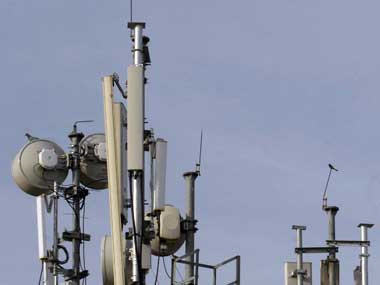Should spectrum in the 900 mhz band, which is considered one of the most efficient for GSM services, be taken back from companies like Bharti and Vodafone and redistributed, at a much higher price? This question has split the telecom industry right down the middle.
In a scathing letter to Finance Minister P Chidambaram, who heads the Empowered Group of Ministers (EGoM) looking into spectrum issues, the Association of Unified Telecom Service Providers (AUSPI) has said that the GSM telcos are misrepresenting the cost associated with refarming, they anyway hold more spectrum than what is known as ‘contracted spectrum’, new telcos and those offering GSM as well as CDMA services already operate with high costs associated with operations in the 1800 mhz band. AUSPI has urged the government to go ahead with refarming.[caption id=“attachment_904909” align=“alignleft” width=“380”] Spectrum issues. Reuters[/caption]
For the lay person the issue can be explained thus: For offering GSM services, telcos use both 1800 mhz spectrum and 900 mhz. The former is much less efficient than 900 mhz, which means it needs more infrastructure such as telecom towers and base stations for quality of service. The incumbent telcos like Bharti, Vodafone etc. had been allotted spectrum in both 1800 and 900 mhz bands earlier. Now that the government wants to come clean on all spectrum, allotted as well as that which is lying unused, it has asked incumbent telcos to return 900 mhz spectrum which will be put up for auction at new., higher prices. Whoever is willing to pay the new price will get the 900 mhz spectrum, otherwise telcos will have to settle for the less expensive but also less efficient 1800 mhz spectrum.
Cellular Operators Association of India (COAI) has been championing the cause of incumbment GSM operators, saying refarming is first of all not tenable legally because it wold lead to a massive disruption of services. Secondly, it will set back GSM operators by as much as Rs 1.25 lakh crore, something the telecom industry simply cannot afford to lose.
A day before the EGoM is scheduled to meet under Chidambaram’s chairmanship, the AUSPI letter makes a strong pitch for going ahead with refarming.
Speaking to Firstpost earlier, senior officials of the Department of Telecom (DoT) had indicated that in the third round of spectrum auctions, which are slated for July, the government may decide not to put up any spectrum in 900 mhz band at all. But whether refarming and subsequent auction of 900 mhz spectrum will happen or not will be decided by the EGoM.
Impact Shorts
More ShortsAs per AUSPI data, Bharti and Vodafone each have 8 mhz of 900 mhz spectrum in Delhi circle; BSNL/MTNL have 6 mhz but RCom, Idea, Aircel and Tata Tele have no 900 mhz spectrum at all in Delhi. In Mumbai, Vodafone has 8 mhz, BSNL/MTNL have 6.2. Reliance Communications, Tata Teleservices and Aircel do not own any spectrum at all in this band, anywhere in the country.
The AUSPI letter says:
• The 900 MHz band has been hoarded by the dominant incumbent operators who have benefited substantially with better quality of service due to better indoor coverage and derived major cost advantages due to much lesser investment on cell site infrastructure from it. Later Mobile TSP entrants have been allocated spectrum only in the less cost effective 1800 MHz band. In many cases, the dominant incumbent operators have also been allotted spectrum far in excess of contracted 6.2 MHz spectrum.
• Incremental spectrum fees payable (at reserve price) for retaining the 900 MHz spectrum for the incumbent operators (as against acquiring 1800 MHz spectrum) would amount to approx. Rs 73,000 crores. This figure is substantially below the Rs. 1.25 lakh crore figure quoted by COAI.
• If the incumbent operators claim that the incremental cost to them for full refarming would be Rs. 1.25 lakh crore, then the Rs 1.25 lakh crores is the amount saved by the incumbents, and is an undue enrichment to these incumbents.


)

)
)
)
)
)
)
)
)



